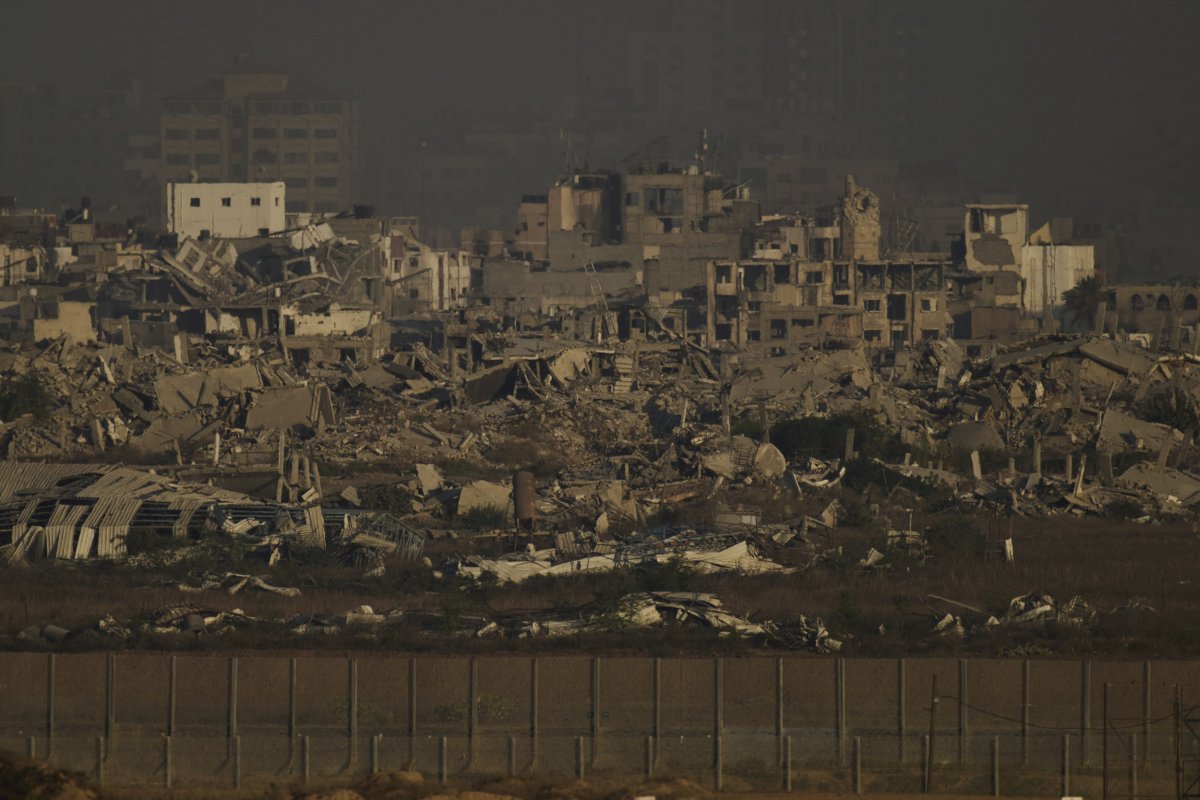Login to Continue Learning
According to an Israeli official speaking to the Associated Press under conditions of anonymity, Israel plans to halt or significantly reduce humanitarian aid deliveries to northern Gaza as it intensifies its military operations in the region.
This decision follows Israel’s declaration of Gaza City as an active combat zone and the end of daytime pauses previously used to facilitate aid access.
Newsweek has reached out to the Israeli Ministry of Defense via email to confirm whether Israel has halted or reduced humanitarian aid deliveries to northern Gaza, including airdrops and truck access.
Why It Matters
The decision to curtail aid comes amid growing international concern over worsening humanitarian conditions in Gaza. Over 2 million people live in the territory, where famine has been documented and over 63,000 Palestinians have died since the war began in October 2023 following Hamas’s attack on Israel that killed 1,200 people and saw approximately 250 hostages.
Aid organizations and global leaders warn that further restrictions could exacerbate starvation, displacement, and civilian casualties. The move also risks deepening criticism of Israel’s war strategy and its handling of hostage negotiations.
Key Points
Israel will soon end airdrops over Gaza City and reduce the number of aid trucks entering northern Gaza. These changes follow the military’s renewed classification of the city as a Hamas stronghold, citing continued use of tunnel networks despite previous raids.
The Israeli military has discontinued daytime ceasefires that were previously implemented to allow humanitarian access. The United Nations (UN) and partner agencies had criticized these pauses as insufficient, noting that Gaza requires at least 600 aid trucks daily to meet basic needs.
Gaza’s Health Ministry reported 10 deaths from starvation and malnutrition in the past 24 hours, including three children, according to the Associated Press. Since the start of the war, 332 Palestinians have died from hunger-related causes. The ministry also reported 15 civilian deaths and over 200 injuries among civilians seeking aid.
Israel is preparing to evacuate hundreds of thousands of residents from Gaza City to the south. The International Committee of the Red Cross warned that such a mass movement would be “impossible to conduct safely or with dignity,” citing the destruction of infrastructure and lack of food, water, and shelter.
Israel confirmed on Friday that it had recovered remains belonging to hostage Ilan Weiss and another individual. Forty-eight hostages are still in Gaza, with families fearing that the expanded offensive could endanger those still alive. Rallies demanding a ceasefire and hostage release are planned in Israel.
AP footage captured multiple explosions across Gaza overnight, showing Israeli strikes intensifying on the outskirts of Gaza City where displaced families are fleeing with few possessions, often using pickup trucks or donkey carts.

Leo Correa/AP Photo
What People Are Saying
Mirjana Spoljaric, President of the International Committee of the Red Cross, said in a statement on Saturday: “Such an evacuation would trigger a massive population movement that no area in the Gaza Strip can absorb, given the widespread destruction of civilian infrastructure and the extreme shortages of food, water, shelter, and medical care.”
Amer Zayed, a civilian awaiting food from a charity kitchen, told AP: “There is no food and even water is not available. When it is available, it is not safe to drink. The suffering gets worse when there are more displaced people.”
What Happens Next?
Israel’s aid restrictions and evacuation plans are expected to face increased international criticism and humanitarian appeals. As the military offensive continues, pressure will likely build on Israeli leadership to balance security objectives with urgent needs for civilian protection and hostage negotiations.



















